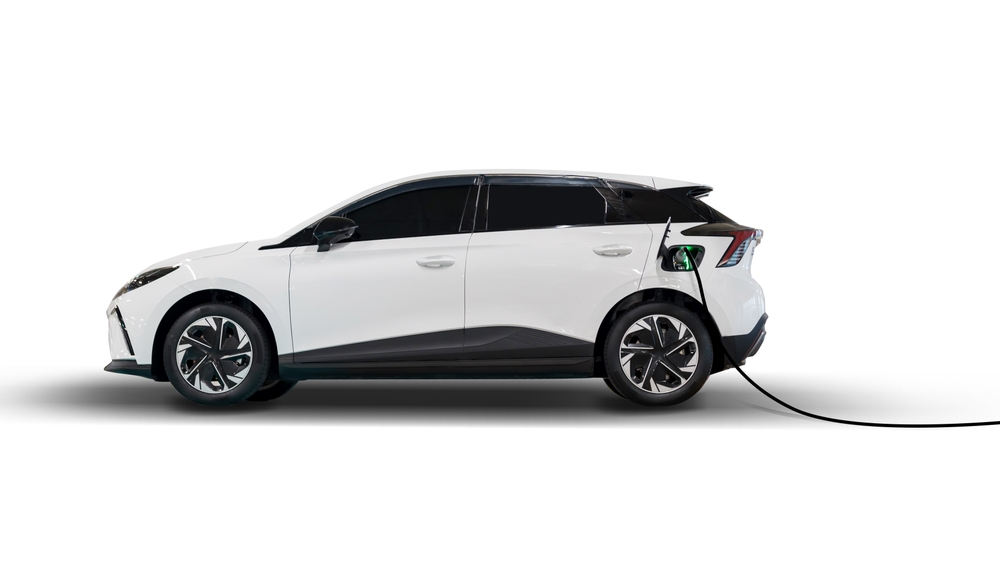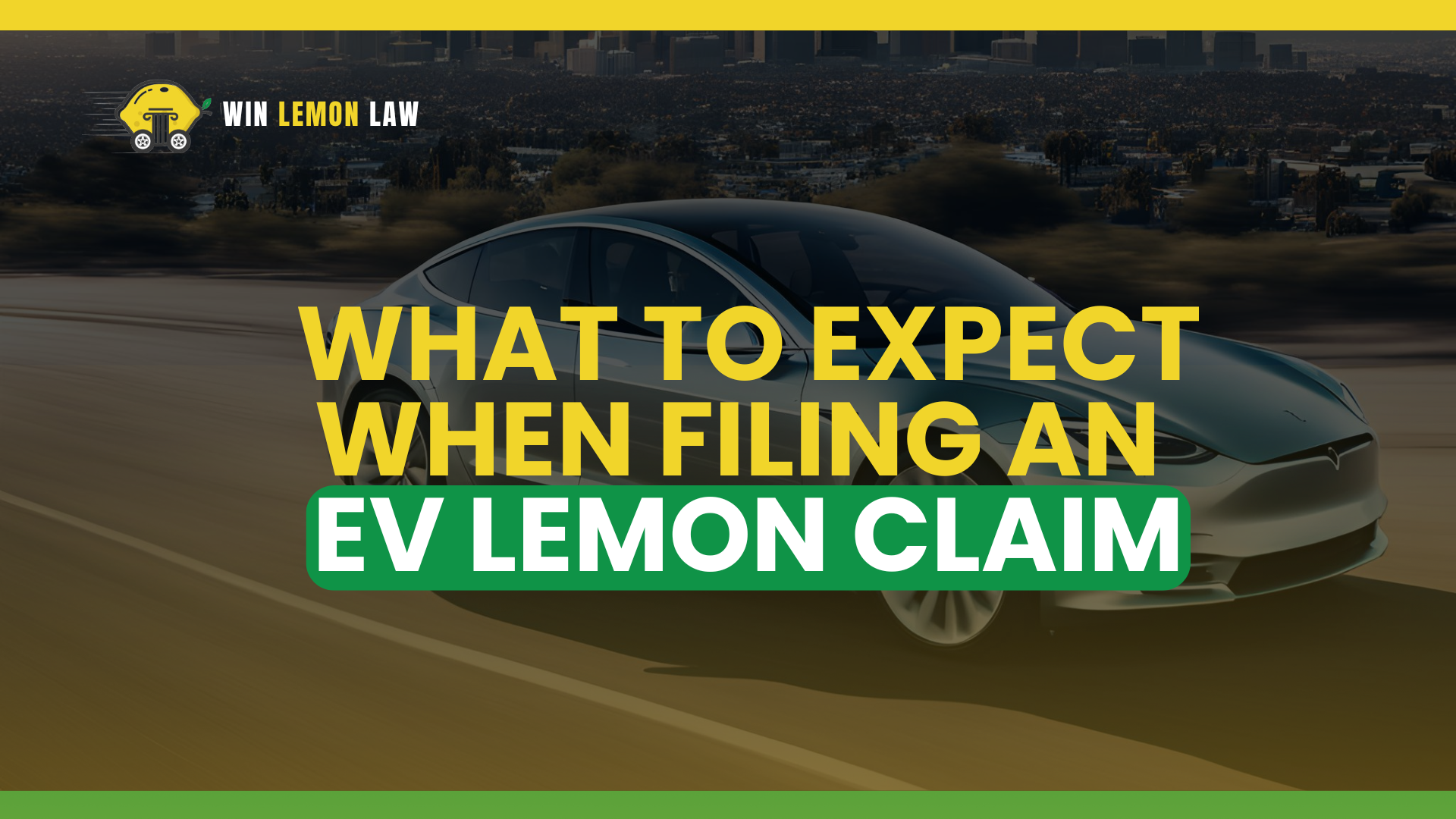As electric vehicles (EVs) continue to surge in popularity, they are becoming an integral part of our roads, revolutionizing the way we think about transportation. Drivers are increasingly drawn to EVs for their numerous benefits—cleaner emissions, lower fuel costs, and the allure of cutting-edge technology. With advancements in battery technology and an ever-growing network of charging stations, the future of driving is undeniably electric. However, while EVs offer many advantages, they are not without their challenges. Like traditional vehicles, EVs can experience defects that significantly impact their performance, safety, and overall value.
For many EV owners, the excitement of owning a high-tech, eco-friendly vehicle can be dampened by persistent mechanical or software issues. These defects can range from recurring battery problems and malfunctioning charging systems to software glitches that disrupt critical vehicle functions. When these issues arise, they can be frustrating, time-consuming, and expensive to resolve, especially if the defects are not adequately addressed by the manufacturer. This is where the lemon law comes into play.
The lemon law is a vital consumer protection tool designed to safeguard vehicle owners from the financial burden of owning a defective vehicle. These laws ensure that if your EV does not meet the expected quality standards after multiple repair attempts, you are entitled to compensation—whether through a refund, replacement, or cash settlement. However, navigating the lemon law process can be complex, particularly when it involves the unique challenges presented by EVs.
Understanding Lemon Law
Lemon laws are essential consumer protection statutes that serve as a safety net for individuals who have purchased or leased a vehicle that turns out to be defective. These laws ensure that consumers are not left to bear the financial burden of owning a vehicle that fails to meet the expected standards of quality and performance. The primary objective of lemon law is to provide a remedy for consumers who find themselves stuck with a “lemon”—a vehicle with persistent defects that significantly impair its use, safety, or value.
While lemon law shares a common purpose across the United States, the specifics can vary from state to state. This means that the criteria for what constitutes a lemon, the required number of repair attempts, the duration within which the defect must occur, and the remedies available can differ depending on where you live.
However, the core principle of lemon law remains consistent: if your vehicle has a substantial defect that continues to persist despite reasonable repair attempts by the manufacturer or authorized dealer, you may be entitled to compensation.
How to Identify a Lemon EV
Determining whether your EV qualifies as a lemon involves several critical steps:
- Substantial Defect
To qualify as a lemon, the defect in your vehicle must be substantial. A substantial defect is one that seriously affects the vehicle’s functionality, safety, or value. For example, issues like faulty brakes, electrical system failures, or recurring battery problems in an EV could be considered substantial defects. Minor issues, such as cosmetic blemishes or non-essential features, typically do not qualify under lemon law.
- Repair Attempts
Before you can file a lemon law claim, the manufacturer must be given a reasonable opportunity to repair the defect. This generally means that the manufacturer or authorized dealer has made multiple attempts to fix the issue, but the problem persists. The exact number of required repair attempts varies by state but typically ranges from two to four for the same defect. In some cases, if the defect poses a serious safety risk, fewer repair attempts may be required.
- Out-of-Service Time
Another way a vehicle may qualify as a lemon is if it has been out of service for an extended period due to repairs. For instance, if your EV has spent a significant amount of time in the shop—often a cumulative total of 30 days or more within a certain period—this could also be grounds for a lemon law claim. The time frame for these out-of-service days varies by state law.
- Warranty Coverage
Lemon laws typically apply to defects that arise within the vehicle’s warranty period. This means that if the problem occurs within a specific time frame or mileage limit—often within the first 12 to 24 months or the first 12,000 to 24,000 miles, depending on state law—the vehicle is covered under lemon law protections. Once this period has expired, it may be more challenging to pursue a lemon law claim.
Manufacturer’s Responsibility
If your vehicle meets the criteria for a lemon, the manufacturer is obligated to provide a remedy. This remedy usually comes in one of three forms:
- Refund: The manufacturer may be required to refund the purchase price of the vehicle, minus a reasonable allowance for use.
2. Replacement: The manufacturer may replace the defective vehicle with a new one of the same model.
3. Cash Settlement: In some cases, the manufacturer may offer a cash settlement that allows you to keep the vehicle while receiving compensation for its diminished value.

Steps to Filing an EV Lemon Claim
Filing an EV lemon claim involves several crucial steps to ensure your rights are protected under the lemon law and to maximize your chances of a successful outcome:
1. To identify if your EV has a substantial defect, first determine whether the issue significantly impairs the vehicle’s use, safety, or value. Common problems in EVs include battery-related issues such as frequent depletion or failure to hold a charge, software glitches affecting navigation or infotainment systems, malfunctioning charging systems, and persistent mechanical problems.
2. Thorough documentation is crucial in lemon law cases. Keep detailed records of all issues and symptoms your EV exhibits, along with dates and descriptions of repair attempts. Save receipts and repair orders from the dealership or service center, and maintain a log of all communications with the dealer or manufacturer, including emails, letters, and phone calls.
3. Allow a Reasonable Number of Repair Attempts The manufacturer or authorized dealer must be given a reasonable number of attempts to fix the defect. In California, this typically means two to four repair attempts for the same issue, depending on the danger it poses.
4. Before pursuing a lemon claim, you must notify the manufacturer of the defect and give them a final opportunity to repair it. This is usually done by sending a formal letter via certified mail that includes a detailed description of the defect, the history of repair attempts, and a request for either a final repair attempt or a resolution.
5. Given the complexities of EV lemon claims, it’s wise to consult with an experienced lemon law attorney. An attorney can evaluate your case to determine if it meets the criteria for a claim, advise you on the best course of action, handle communications and negotiations with the manufacturer, and represent you in arbitration or court if necessary.
6. If the manufacturer cannot resolve the issue after the final repair attempt, you may need to pursue arbitration or litigation. Arbitration is often a quicker, less formal alternative to court, where an arbitrator reviews the evidence and may award a vehicle replacement, refund, or cash settlement.
If arbitration is unsuccessful or not an option, you may need to file a lawsuit. In this case, your attorney will represent you in court, presenting evidence and arguing your case for compensation.
7. Depending on the outcome of arbitration or litigation, you can expect one of several resolutions. The manufacturer may replace your defective EV with a new one of the same model, provide a refund of the purchase price minus a reasonable allowance for use, or offer a cash settlement, allowing you to keep the vehicle while receiving compensation for its diminished value.
Unique Challenges with EV Lemon Claims
While the process is similar for all vehicles, filing a lemon claim for an EV can present unique challenges:
- Complex Technology
EVs have advanced technology that can be more challenging to diagnose and repair. Issues with battery life, charging systems, and software updates can be particularly troublesome.
- Fewer Qualified Technicians
There are fewer technicians trained to work on EVs, which can lead to longer repair times and more persistent issues.
- Higher Repair Costs
Repairing EVs can be more expensive due to the specialized parts and technology involved.
These complications highlight the importance of working with an experienced lemon law attorney who understands the nuances of EVs.
Closing

Navigating the complexities of a lemon law claim, especially with the advanced technology in electric vehicles, can be daunting. At Win Lemon Law, we recognize the frustration and inconvenience that comes with owning a defective vehicle. Our mission is to alleviate that burden by offering personalized, expert legal support tailored to your unique situation.
With a proven track record in lemon law cases and a deep understanding of the specific challenges that come with EVs, our team is committed to ensuring that you receive the compensation you’re entitled to. We handle every aspect of your claim—from initial consultation to final resolution—so you can focus on what matters most: getting back on the road with peace of mind.
If you suspect that your EV might be a lemon, don’t wait. Reach out to Win Lemon Law for a comprehensive consultation. We’re here to fight for your rights and help you reclaim your driving experience. For more information or to schedule a consultation, contact us today and take the first step toward resolving your lemon law claim.

